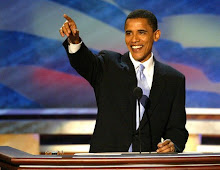After the horrific attacks of September 11th, 2001 Iran’s then President Mohammad Khatami offered his full support to George Bush in both strategic military planning and reconstruction efforts in Afghanistan. Only a few months later George Bush undermined Iran’s reformist President by deeming that the Iranian nation was a part of an Axis of Evil. This affront to the Iranian nation led to the election of Mahmud Ahmadinejad, a populist who used anti-American rhetoric to build support against what he called the inability of reformists like President Khatami to stand up to the West.. Since then, what were once improving relations between Iran and the West have not only frozen, but have in fact regressed. The belligerent rhetoric by George Bush and Mahmud Ahmadinejad has done nothing to settle the issue of whether or not Iran should have the right to nuclear energy. For seven years George Bush and his administration refused to engage in any form of dialogue with Iran, precluding the possibility for any meaningful progress to be made over the nuclear issue. America’s stance was that until Iran froze its enrichment—an activity it is legally allowed to undertake under the terms of the Nuclear Proliferation Treaty of which it is willfully a member—it would not engage in direct talks. This was the case until just recently, when an American envoy finally attended, though did not talk, in its first multi-lateral meeting with Iranian negotiators. This isolation and passive approach has meant several things 1) The U.S. has had less leverage among the world’s super powers in enacting any real meaningful pressure through the United Nations on Iran; 2) It has increased Ahmadinejad’s popularity in a country where he has failed to have success with his broader domestic agenda; and, 3) The real losers in this process have been the Iranian people, where the sanctions regime has devastated the economy for the working class.
John McCain has proposed nothing that would deviate from this course. Rather he believes that we should continue to avoid direct talks with the Iranians, a path which which has led to absolutely zero progress over the past seven years. Furthermore, his team of foreign policy advisers has been drawn from among the most hawkish elements of Bush-style neoconservatives, and it includes people like John Bolton, Billy Kristol, and Joseph Lieberman. These figures are strong advocates of using American military power to promote American values. They are the engineers of the Iraq War and have made nothing but the most aggressive and careless statements regarding Iran, while Lieberman –McCain’s most likely candidate for Secretary of State—has explicitly called Iran’s alleged involvement in Iraq “an outright act of war”. This type of rhetoric and the refusal to forcefully engage in diplomacy with Iran over the nuclear issue not only strengthens Ahmadinejad, but it proposes a frightful path towards war. This is especially the case in light of the fact that John McCain on October 9th, 2007 during the Republican Party Primary Debate said that war with Iran is “a possibility that is maybe closer to reality than we are discussing tonight”. This, in addition to the fact that he has in the past sang songs joking about bombing Iran, and numerous other times spoken of the possibility that there will be other wars, gives every indication that he plans to continue the reckless and aggressive policy that has been the hallmark of the Bush Administration.
On the contrary, Barack Obama, while always warning of the threat that Iran poses to America and its interests, has proposed a significantly different direction. He has argued that without forceful, direct diplomacy little can be expected to change. Obama plans to propose meaningful economic incentives to the Iranians and to personally involve himself in the issue. By acknowledging the Iranian need for nuclear energy—but demanding comprehensive and exhaustive oversight—and being sincerely interested in coming to a fair conclusion, versus in being advised by a group of neocons who have long called for military action in Iran, Obama provides a viable alternative path. With this approach several possibilities are opened. Direct diplomacy will give Iranian reformists a platform to argue against hardliners in Ahmadinejad’s camp who repeatedly use America’s disrespectful attitude towards Iran as rallying cry to garner support. Furthermore, it allows the U.S. to build legitimacy in the eyes of the International Atomic Energy Agency and other world powers who have criticized it for its passive, hands-off approach. This legitimacy also provides the only way any meaningful pressure can be applied on an international level. And finally, by avoiding the irresponsible language used by the likes of George Bush and John McCain, Obama is more readily able to garner the support of the Iranian people in applying pressure on their own government over the nuclear issue.
Thursday, October 30, 2008
Obama and McCain on Iran
Posted by
O.
at
11:20 AM
![]()
![]()
Subscribe to:
Post Comments (Atom)




![[TenReasonsLogo.jpg]](https://blogger.googleusercontent.com/img/b/R29vZ2xl/AVvXsEhKMmTKaMm-Ro9e8EsteDmpm9XFFa4WphkpBFq6IgvxZ0cqASTpQGOj-UxFRMjlac2OHkuTY1YqoifmShqT58hTdy7X2nSjnUIrUUEjONkpAjmYUxMSk4z8NVEY0XwNv9wNXFHZkw/s1600/TenReasonsLogo.jpg)
No comments:
Post a Comment